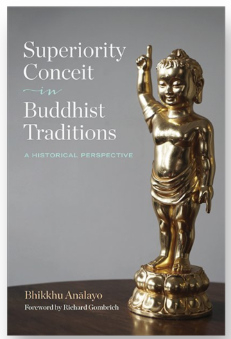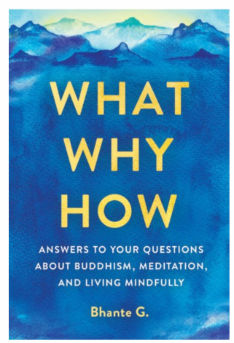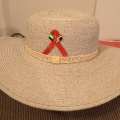Relatively New Buddhist Books & Articles | thread begun March 2021
 Dhammika
Veteran
Dhammika
Veteran
Greetings. I am starting up this suggested thread with 2 books:
BOOK 1: "WHAT WHY HOW: Answers to Your Questions in Buddhism, Meditation, and Living Mindfully," be Bhante G
I had a curator's hand in helping this 2020 Wisdom Publications book into being. Many on this site will know Bhante G — full name, Bhante Gunaratana, 93-year-old abbot of the Theravadan Buddhist monastery and retreat center in my home state of West Virginia. He is author of many books, including the classic meditation primer "Mindfulness in Plain English" (translated into more than two dozen languages.)
Bhante G has been a key meditation teacher and spiritual friend to me since I first did a newspaper story on Bhavana back in 1990. Impressed by the succinct, insightful off-the-cuff answers he gave in retreats and Dhamma talks, I pitched to him the idea of a book collecting his best Q-and-A responses from his more than a half-century of teaching. I began gathering them 15 years go. My life went off the rails from addiction, I got sober 7 years ago. I got older. I worried my promise of editing such a book would be another phantasm in my life. About 4 years ago, I buckled down and took a deep dive into all the recorded Bhante G Dhamma talks and transcripts online. Interviewed him twice at Bhavana. And, by gum, Wisdom accepted the manuscript. It is not 'my' book, as I was just a helpful editor. It is all Bhante G.
HERE IS ONE OF THOSE RESPONSES:
BHANTE G: "... when we start to pay mindful attention to our moment-to-moment experience, we learn to see the mind’s restlessness and distraction, its illusions and desires, more keenly. That is where letting go comes in. Very often you hear about 'letting go of things.' Sometimes meditators become confused by this phrase. We must remember what is meant. We learn to let go of those things that are harmful to our practice, but we keep those things that are beneficial.
"What is harmful to us? Greedy thoughts are harmful. Hateful thoughts. Jealousy, fear, worry, confusion—we must train ourselves to abandon these states by cultivating their opposites. When we have mindful reflection, what do we see? What do we gain? We gain clear comprehension.
"Clear comprehension or clear understanding of the purpose, according to the Buddha, means we understand our aim. It means that we meditate not just to gain a little relaxation or to temporarily feel good. Those are certainly nice byproducts of meditation practice. But the ultimate aim of practicing meditation is the purification of our being. We aim at no less than overcoming suffering, treading the path that leads to liberation, and finally attaining that liberation. Our mind and body are our laboratory for this effort."
YOU CAN EXPERIENCE THE BOOK'S CONTENT as a free series at: https://wisdomexperience.org/wisdom-article/ask-bhante-g/)
BOOK 2: "Superiority Conceit in Buddhist Traditions: An Historical Perspective" by Bhikkhu Analayo.
I wish I could discuss this book's content, but it is just out by Wisdom and I just ordered it. Those who have read Analayo's prior works or heard his Dhamma talks know he is a scholar monk of the highest rigor, integrity, and insight. I am very much looking forward to reading this, since Buddhist practice in America is, in my limited experience, riven with what Bhante Analayo writes of — 'my tradition is better than yours, mine is superior, yours inferior, your practice is blinkered, mine expansive, etc. etc. etc.'
MORE HERE: https://wisdomexperience.org/product/superiority-conceit/
“Scholars within the academic discipline of Buddhist studies have long benefited from Bhikkhu Anālayo’s many careful and excellent studies of early Buddhist thought, based on a comparative reading of the available sources. Now, he makes the results of his many years of research available in an accessible and highly personal form: an impassioned plea to his fellow Buddhists to recognize their conceit—that is, their feelings of superiority over their fellow Buddhists—and its utter inconsistency with the core teachings of the Buddhist tradition. This slim volume will provide much food for thought for scholars and Buddhist practitioners alike. Highly recommended.”—Reiko Ohnuma, professor and chair, Department of Religion, Dartmouth College









Comments
Good idea @Dhammika ... I had a look at the Bhante G. article series, he seems to have a sensible view on things. It has been a while since I read a new dharma book, so I might not have much to add, but if I find one I will post it up.
Kerome: Somewhere there is a tale (I think it's an anecdote Ajahn Sumedho tells of his days studying in the Thai outback with Ajahm Chah), in which the truth-speaking old master tells his young monks in training something to the effect: "Lock up your books!" Stop reading and reading and reading in an attempt to grok the Buddha's teachings — and start exploring what Ajahn Chah once referred to as "this 6-foot-frame" in which we have everything we need. About 6 years ago, I was in full-bore psychic crisis. I binged day and night on Buddhist books and talks, ping-ponging from Thanissaro Bhikkhu, to Sumedho to wonderful lay teachers like Josh Korda and Gil Fronsdal. I'd stay up late, reading them in the glow of my iPad in bed, trying not to bother my snoozing wife.
In retrospect, some of this deep dive into Buddhist explaining was like a buoy I struggled to hold onto in the turbulent waters of my life, as I tried to keep from drowning. About 2 years ago, I put the books down. These days, as I try to notice my breathing, my arms and my legs, to figure out why I am anxious or depressed, I am seeking to see if I can find — breath-by-breath — what all that verbiage is really, truly about. There is a time for reading. And there is a time for just being. They are, of course, not mutually exclusive. Peace.
Should we flick through, put on our head or sit on?